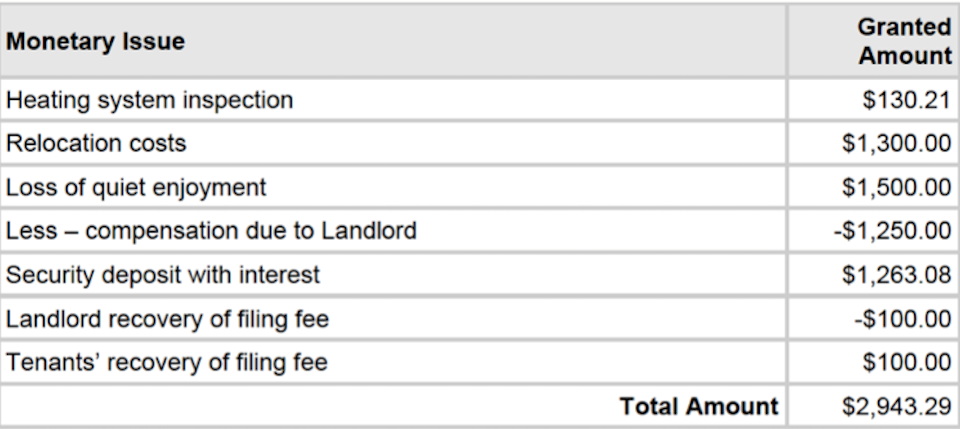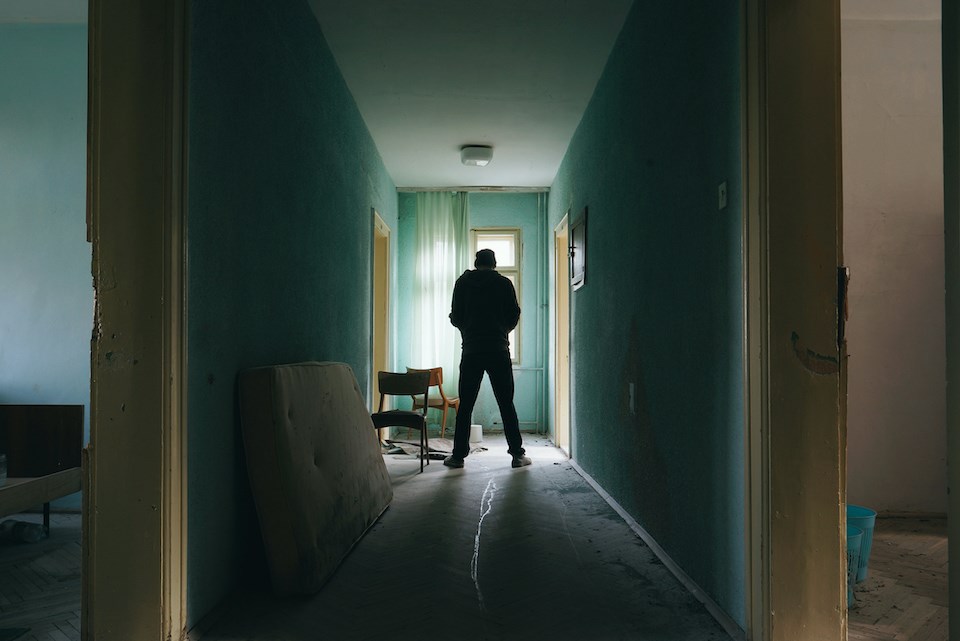A B.C. landlord was ordered to pay their tenants thousands of dollars after failing to address a serious heating issue and several other problems, including pest infestations.
The Residential Tenancy Branch (RTB) hearing dealt with the landlord's claim under the Residential Tenancy Act (RCT), section 38, for unpaid rent and the tenants claim for monetary compensation for damage or loss.
The tenants filed for damage or loss resulting from several issues throughout the tenancy, including bed bugs, a disruptive neighbour, mice, and a broken heating system.
The tenancy commenced on Aug. 1, 2023, with a monthly rent of $2,500 and a security deposit of $1,250 paid at the onset of the tenancy, according to hearing documentation.
The landlord stated that the tenant only gave five days of notice before moving out of the rental unit on Jan. 31, 2024. As a result, they lost rental income for three months and were only able to re-rent the unit on May 1, 2024. The tenancy agreement was a fixed-term agreement ending on July 31, 2024.
The landlord said that they showed the rental unit two times weekly for several months and were only able to rent the unit out as of May 1, 2024, losing the rental income for February, March and April 2024. They submitted a Craigslist ad showing that the unit was posted on the platform in late January 2024 (when the Tenants said they were moving out). However, the ad says that the unit is a one-bedroom, and it is a two-bedroom.
The tenants submitted evidence of a different posting for a two-bedroom rental unit on Craigslist dated Feb. 20, 2024.
The RTB arbitrator stated that the tenants broke their contract by moving out several months before the end of their tenancy. However, the landlord didn't do everything in their power to minimize monetary loss. By posting the incorrect rental in January, they likely contributed to the delay. The landlord also didn't submit evidence supporting the scope of their efforts in March and April 2024.
"In particular, they did not submit any corroborating evidence that the rental unit was shown two times a week for several months. In the circumstances, I find that the Landlord is entitled to half a month of compensation, in the amount of $1,250.00, because had the Landlord posted the proper rental unit when notice was given, new tenants would likely have been found by Feb. 15, 2024," they wrote.
Why the tenants were entitled to payment
The tenant filed four monetary claims against the landlord.
The tenants informed the landlord of a bed bug issue on Nov. 18, 2023, and alleged the landlord didn't do anything. They tried to deal with the bed bug infestation on their own by purchasing a vacuum and a heat gun from Canadian Tire, costing $463.70.
In a text message on Dec. 5, 2023, the landlord said he would hire a pest control operator but that the tenants would have to pay for the treatment. The landlord had arranged a pest control inspection for Nov. 27, 2023, and a treatment was done on Dec. 12, 2023. The company said the eight units surrounding the tenant's one were unaffected, and the landlord argued that they brought them in on their furniture.
The arbitrator noted that getting supplies was a poor decision and that the tenants should have contacted a pest control company first. They dismissed the tenant's claim but did not believe they caused the bed bug issue.
The tenants said that between October 2023 and January 2024, the heating system did not work properly. They felt "uncomfortably cold at night because the heating system would simply shut off." Pictures showed ice on the windows.
The tenants repeatedly told the landlord about the heating issue, and nothing was done. They paid a professional $130.21 to inspect and attempt to repair the system. They also submitted evidence indicating several recommendations made to address the heating issue.
The Landlord said that the building has central heating and that the tenants’ unit was the only one with any issue. They also claimed they fixed the issue "repeatedly by releasing air from the pipes" and that hiring a professional was unnecessary.
The arbitrator accepted there was a heating problem in the rental unit, which was "confirmed by the visible ice on the windows and the landlord’s acknowledgement that he had to regularly attend to address the issue." Therefore, the landlord’s efforts were insufficient, and the tenant was awarded $130.21.
Tenants were new to Canada, making it difficult to find housing
The tenants claimed $1,300 because they had to hire a housing agency to find a new rental unit due to the state of the rental unit. There were mouse and bed bug infestations, poor heating, and disruptions from a neighbour. Additionally, the landlord wouldn't give them a good reference. Once, a prospective landlord called the old landlord, and they gave a bad reference.
The arbitrator accepted that the tenants felt forced out and that the landlord wasn't addressing serious issues, such as the heating that made conditions uncomfortable for the children sleeping at night. The tenants were also newcomers to Canada with little background, making them less attractive tenants. The tenants were awarded $1,300.
The tenants also claimed $10,000 (about four months' rent) due to various problems in the rental unit, including a downstairs neighbour who repeatedly banged on the ceiling and yelled at them. The landlord said, "a lot of time and energy was spent addressing this issue, including by encouraging the parties to be more friendly and understanding towards one another."
The arbitrator found the claim to be exaggerated because it would require the landlord to have behaved much worse. However, they noted that the heating issue particularly caused a loss of quiet enjoyment, and the landlord was negligent for a long period, particularly because the children fell sick (it persisted between October and January). The tenants were awarded $1,500.
The tenants were awarded $2,943.29 on June 25, 2024.




